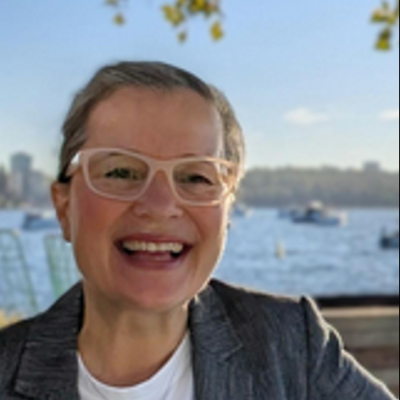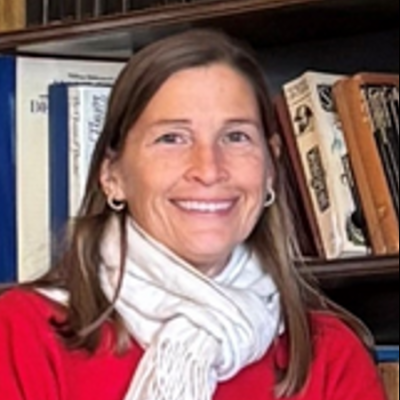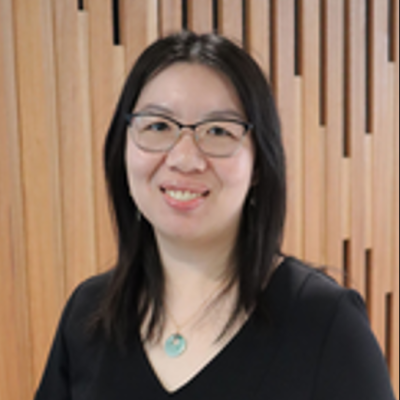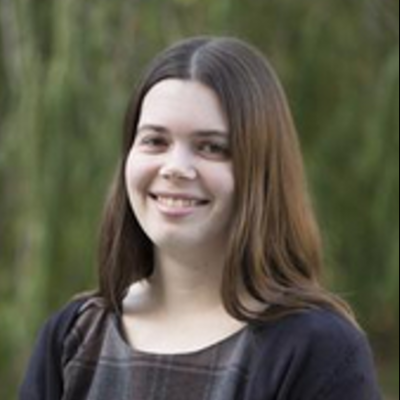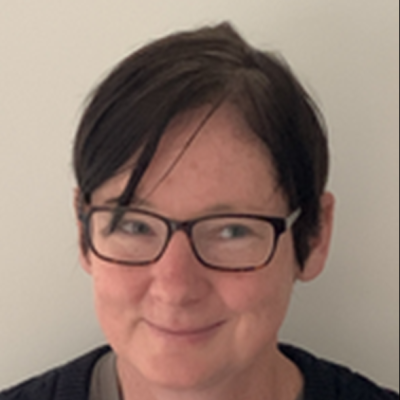Collaboration
Creating a collaborative open source, crowd-sourced educational resource: The Digital Skills GitBook project
AARNET, ACU, ECU, UWA, RMIT
Dr Sara King; Nica Tsakmakis; Sue Khoo; Katie Mills; and Christine Ruddy
Overview
The Digital Skills GitBook project was initiated in 2021 by the Council of Australian University Librarians (CAUL) in collaboration with Australia’s Academic Research Network (AARNet). Supported by CAUL’s Digital Dexterity Program, the project brought together a diverse, virtual team of librarians from across Australia and New Zealand as part of the Digital Dexterity Champions Community of Practice (DigiDex CoP).
This initiative was developed in response to a growing need across the academic and research community for accessible, practical guidance on foundational digital skills—skills that are essential for modern research and teaching but are often assumed or unsupported in formal training.
The goal was for a working group of university library professionals to develop a community-driven book on digital skills and information literacies for the broader academic community. The process of creating the book was used as professional development for the group as they developed skills such as using Git, GitHub and GitBook, editing with Markdown, creating an open source, crowd-sourced educational resource, and a shared space for peer learning and community engagement.
The team successfully created a platform for collaboration, learning, sharing and empowerment amongst academic librarians and research support staff. The project also encountered several barriers and challenges, some within the team’s influence and some beyond their control, that impacted on its development and ongoing sustainability. However, it was a highly valuable experience, marked by unanticipated, yet positive outcomes and meaningful connections.
This chapter presents a case study on the development, growth, challenges and key learnings from the project. It provides commentary on why some community-led projects grow, expand and gain a large community following. It also questions why some projects, like this one, struggle to truly fulfil their potential. Throughout the chapter are quotes from members of the team and their thoughts on the project and the process.
Using this case study
After reading this chapter, audiences should gain a better understanding of:
- The key stages involved in the development, growth, and ongoing sustainability of a community-driven OER project.
- Barriers and common challenges that can prevent these projects from reaching their full potential and factors that can lead to stagnation or decline.
- Strategies for strengthening community-led OER projects.
Background
Inspired by global, open science and research skills communities such as The Carpentries and The Turing Way (2022), the project aimed to create a living, open-source online guide to ‘not-quite-technical’ digital skills such as file naming, Git and GitHub basics, README files, and screen casting. Built using the GitBook platform with GitHub for collaborative contributions, the guide was designed to evolve with its community of users and contributors and was targeted at librarians and academic library communities.
There were two goals: a project for professional development for academic librarians and the creation of a resource for the library community.
Project description
In 2021, after some experimentation and an initial introductory Git and GitHub workshop via the Australian Research Data Commons (ARDC), the group created the structure of the book in GitHub, wrote a Code of Conduct, a copyright statement, instructions on how to use GitHub, and guidelines on how to make chapter contributions.
The chapter outline was assembled based on the skills and capabilities identified in the CAUL Digital Dexterity Framework (CAUL, 2019). The team wrote some suggested articles, and a process for topic suggestions by contributors. Pages were created and suggestions of difficulty levels were provided.
Subsequently, training and skills development were largely self-led using open or free online guides, including the extensive guidance provided by GitHub (Github, n.d.) and The Markdown Guide (n.d.).
Team members promoted the project to library communities through CAUL’s DigiDex CoP, advertised to library groups, presented at various conferences, held GitHub training and hosted collaborative writing sessions to garner interest and gain both new project team members and contributors. Growth was slow but steady through 2021-2022 and the team acquired a peak of 18 total contributors.
| Jan-Jun 2021 | Jul-Dec 2021 | Jan-Jun 2022 | Jul-Dec 2022 | Jan-Jun 2023 | Jul-Dec 2023 | Jan-Jun 2024 | |
| Total Contributors | 1 | 12 | 15 | 18 | 18 | 18 | 19 |
| Active Contributors | 1 | 12 | 11 | 11 | 3 | 1 | 3 |
| Line additions | 1 | 1863 | 1892 | 1118 | 183 | 1 | 64 |
| Line deletions | 0 | 874 | 1890 | 565 | 110 | 1 | 67 |
Table 1 above shows the active number of people who contributed to the book, and contributions through additions and deletions by GitHub ‘lines of code written’ for each half year period ending July 2024 after the VALA presentation.
As the project progressed through to 2023, most team members had either changed jobs, had less time to dedicate to the project or moved on. People with key skills had left the team, resulting in gaps in the book development workflow. The number of article submissions stagnated in 2022, and there was a steady drop in members from 12 in 2023 to just 6 in 2024.
| Jan-Jun 2021 | Jul-Dec 2021 | Jan-Jun 2022 | Jul-Dec 2022 | Jan-Jun 2023 | Jul-Dec 2023 | Jan-Jun 2024 | |
| GitBook Team Membership | 1 | 12 | 15 | 12 | 13 | 12 | 6 |
Table 2 above shows the members of the GitBook team over time.
In 2024, the remaining project team members began a period of critical reflection by revisiting the original project goals and seeking feedback from stakeholders in the library community. Constructive feedback received from attendees at a poster presentation session (Khoo, 2024) revealed a higher amount of interest in the use of GitHub rather than the broader range of digital skills and literacies within the scope of the project. The audience agreed that the purpose and viability of the book needed to be reconsidered, and this ultimately led to the decision to discontinue the book in its current form.
Key outcomes
Over the course of the project, 21 topics from 18 contributors were added to the book on topics ranging from installing and accessing browsers to pedagogy and andragogy in an online environment. All these contributors navigated new skills such as forking a GitHub repository, creating and editing a markdown file and committing changes to a master branch to add their topics.
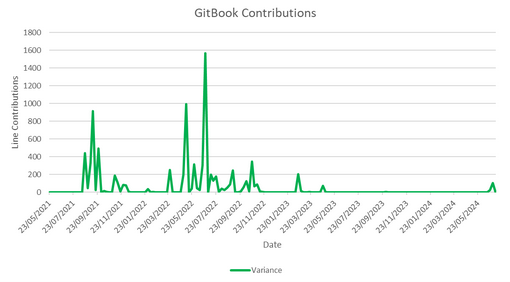
The project shifted focus a year or two after implementation as a result of community engagement. As the feedback from the poster presentation indicated, there was more interest in the process than the product. Based on this outcome, the team implemented a new approach of attending conferences and tech camps to provide introductory GitHub workshops, using the book as a teaching tool rather than promoting the book as a resource and seeking contributors.
The project provided many opportunities for professional development and several contributions to the community. These were often the first chance for the team members to deliver conference presentations, facilitate workshops and create OER content.
However, by far the greatest outcome of the project was the development of an international cross-institutional network of librarians who collaborated on the project. Through peer learning, experimentation, and regular collaboration, the team not only developed a shared resource but also built a new professional learning community. Member comments included:
“I’ve really appreciated the collegiality of the group. I’ve loved working with everyone from across Australia and New Zealand and it is so clear that libraries are full of amazing people!”
– Bryony Hawthorn, Librarian
“This project is a wonderful example of problem-based, experiential learning in action, demonstrating the way in which learning occurs through the act of creating something tangible. The ingredients for creativity are all in the mix, including a safe, supportive environment for experimentation and a diversity of skills/capabilities. Being part of the group is like having a window into a ‘living lab’ of creative process – it is a truly collaborative space.”
– Dr Karen Miller, Librarian
Ultimately, several factors impacted the ongoing sustainability and momentum of the book. These include dwindling project team membership and the dissolution of the overarching CAUL DigiDex CoP. As a result, the project is ending in its current form.
However, the book will remain open as a workspace for the foreseeable future. It will provide a no-pressure environment for community members to copy the GitBook, experiment with GitHub functions, and see how GitBook/GitHub can be used with real content, and for future OER projects to adapt and build on the documentation and learnings.
Learnings and recommendations
The following recommendations are a result of the team’s learning and experiences throughout the GitBook project. They are provided for the benefit of other teams embarking on the creation of their own community-led OER projects in order to help them navigate potential challenges and ensure their project can meet its full potential.
Be prepared to pivot
The COVID-19 pandemic and its aftermath saw a significant impact on libraries and higher education, with restructures and redundancies resulting in greater workloads and reduced capacity for members of the project team. While participation declined, the DigiDex CoP was concurrently undergoing a period of strategic review, which ultimately led to its dissolution and left the GitBook without the institutional support or governance framework necessary to sustain the collaborative effort.
Post-pandemic workplace changes may explain much of the drop in contributions. The closure of the DigiDex CoP may also reflect broader issues around capacity and commitment to digital skills training. These challenges were further influenced by the pervasive emergence of Generative AI, raising new questions around how digital literacy would take shape amidst this transformational technological change.
Start with a ‘minimum viable product’
The CAUL Digital Dexterity Framework was a useful reference for the GitBook’s initial chapters and topics, however, on reflection it may have been too expansive, allowing for a proliferation of subtopics depending on contributors’ interests or interpretations. Additionally, the chapter difficulty levels may have deterred contributors by requiring more content uncertainty around what each level should include.
Consequently, initially constraining the scope of similar OER projects with a ‘minimum viable product’ (Jansen, 2024) can provide a firm foundation and prevent confusion and disengagement. When experiencing declining involvement as occurred with the GitBook in 2022-2023, the scope of chapters and topics could have been further reduced and reorganised to make it more appealing and less overwhelming for potential contributors.
Define and maintain core roles – but allow for flexibility
A stable core team and a rigorous governance structure are critical for sustaining engagement in open-source projects (Crowston & Shamshurin, 2017; Ehls, 2017). This project retained the same lead, but core team membership declined due to competing workplace demands. Defining key roles and filling them as vacancies arise is advisable.
Clear roles are important, given that open-source projects are often undertaken externally to regular work duties. Transparent leadership, experienced and accountable team members, and pre-established governance structures ensure continuity and provide essential support to current and potential contributors.
Establish a reliable, effective communication channel for everyone
It is well worth carrying out an audit of project management and/or communication tools to establish a reliable, accessible and effective approach for everyone. According to Jansen (2024), this is a crucial step for meaningful interaction and feedback when it comes to open-source projects.
The team experimented with Slack however it was not a tool that most members in the group used and was not suitable for file sharing. The group eventually used a Teams site dedicated to the DigiDex CoP, hosted by Deakin University. Unfortunately, this was not workable for all team members due to some institutional IT barriers.
Create a safe space for learning
This project provided a space for people to talk about not understanding or not having the experience on the platforms that was required in developing this book. It allowed for members to ask questions and fostered a mutually supportive, non-judgmental environment to develop new skills.
Feeling psychologically safe to participate enhances learning and knowledge creation (Lim & Choy, 2023). Knowing this was a safe space meant it was a great space for learning through experimentation, making mistakes and asking for help. Project member comments included:
“That “aha” moment when I decided I could no longer pretend that I knew what everyone was talking about and I needed a refresher and felt safe to admit this to the group.”
– Nica Tsakmakis, Senior Librarian
“I have noticed that the group helps me to feel brave enough to try something – and I have such a great sense of achievement afterwards!”
– Emma Chapman, Librarian
In practice
- Do you have structural and/or financial support and a contingency plan if that support is removed?
- Can you define a ‘minimum viable product’ so you can create a manageable project plan and achievable milestones to be able to review your project early on?
- Do you have a clear set of roles that need to be filled throughout the project’s lifetime, in case project members leave the team?
- What communication channels are you using with your group? Do they work well for everyone? Is it seamless for new members to join your project?
- What makes your team and project special? What techniques are you adopting to create a safe environment for learning and creativity for your group?
Conclusion
Looking back at the original project goals, the team did successfully create a great professional development environment for librarians. It did not manage to create the kind of comprehensive resource that the community would co-create and use.
Nonetheless, this project proved to be a highly valuable professional development experience, providing substantial learning opportunities, insights and outcomes. Let this story not be one of deterrence but an encouragement for others to take on unorthodox projects and see what skills you learn along the way.
The authors fully endorse and encourage others to either continue this project or implement a similar project, with the hope that these recommendations will contribute to the success of future iterations.
In conclusion, engage fully with the process; the experiential learning gained through active participation is of greater significance than a preoccupation with procedural details or an end product.
Further reading and resources
A proliferation of books, guides and case studies has been published since the 2020 rush to move to wholly online communities and projects. These are some that we are aware of; however, it is worth regularly checking the literature as these communities and resources mature.
Community guides
- The Turing Way community guide
- GitHub for community management
- Building and sustaining Carpentries subcommunities
- Program management for open source projects
Sample GitBooks
References
Council of Australian University Librarians. (2019). Council of Australian University Librarians (CAUL) Digital Dexterity Framework.
Crowston, K., & Shamshurin, I. (2017). Core-periphery communication and the success of free/libre open source software projects. Journal of Internet Services and Applications 8, Article 10. https://doi.org/10.1186/s13174-017-0061-4
Ehls, D. (2017, January 4-7): Open source project collapse – Sources and patterns of failure [Conference paper]. In Proceedings of the 50th Hawaii International Conference on System Sciences (HICSS-50). https://aisel.aisnet.org/hicss-50/os/open_source/3/
Fang, Y., & Neufeld, D. (2009). Understanding Sustained Participation in Open Source Software Projects. Journal of Management Information Systems, 25(4), 9–50. https://doi.org/10.2753/MIS0742-1222250401
GitHub. (n.d.). GitHub docs. https://docs.github.com/en
Jansen, E. (2024, August 15). Successful open source projects: Examples and lessons from the community. HAKIA.com. https://www.hakia.com/successful-open-source-projects-examples-and-lessons-from-the-community
Khoo, S. (2024). Git’n back on the road after a stall [Conference presentation]. 22nd Biennial Conference and Exhibition, VALA2024, RMIT University, Melbourne. https://www.vala.org.au/public/226/files/Conferences/2024/S8%20Khoo%20Poster.jpg
Lim, E., & Choy, S. (2023). Adults’ Social Connectedness in the Online Learning Environment. Proceedings of EdMedia + Innovate Learning 2023 Conference, pp. 1415-1421. https://www.learntechlib.org/primary/p/222663/
The Markdown Guide. (n.d.). Getting started. https://www.markdownguide.org/getting-started/
The Turing Way Community. (2022). The Turing Way: A handbook for reproducible, ethical and collaborative research (1.0.2). Zenodo. https://doi.org/10.5281/ZENODO.3233853
Image descriptions
Figure 1: Number of edits by contributors over time
Number of edits by contributors over time for the life of the GitBook project (2021-2024). The graph shows peaks of contribution in August 2021 and May-July 2022. Data sourced from GitHub.
Acknowledgement of peer reviewers
The authors gratefully acknowledge the following people who kindly lent their time and expertise to provide peer review of this chapter:
- Amy Tucker, Open Learning Faculty Member, Thompson Rivers University
- Rhiannon Hall, Education & Students Content & Communications Coordinator, University of Technology Sydney
- Claire Ovaska, Open Education Project Specialist, James Cook University
How to cite and attribute this chapter
How to cite this chapter (referencing)
King, S., Tsakmakis, N., Khoo, S., Mills, K., & Ruddy, C. (2025). Creating a collaborative open source, crowd-sourced educational resource: The Digital Skills GitBook project. In Open Education Down UndOER: Australasian Case Studies. Council of Australian University Librarians. https://oercollective.caul.edu.au/openedaustralasia/chapter/digital-skills-gitbook-project/
How to attribute this chapter (reusing or adapting)
If you plan on reproducing (copying) this chapter without changes, please use the following attribution statement:
Creating a collaborative open source, crowd-sourced educational resource: The Digital Skills GitBook project by Sara King, Nica Tsakmakis, Sue Khoo, Katie Mills and Christine Ruddy is licensed under a Creative Commons Attribution 4.0 International licence.
If you plan on adapting this chapter, please use the following attribution statement:
*Title of your adaptation* is adapted from Creating a collaborative open source, crowd-sourced educational resource: The Digital Skills GitBook project by Sara King, Nica Tsakmakis, Sue Khoo, Katie Mills and Christine Ruddy, used under a Creative Commons Attribution 4.0 International licence.

